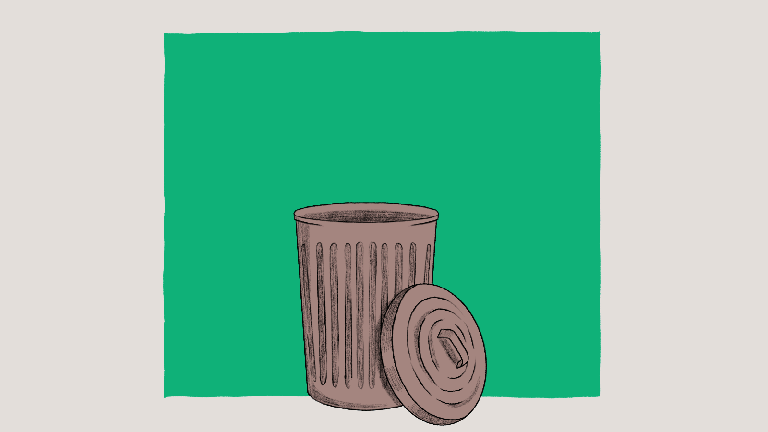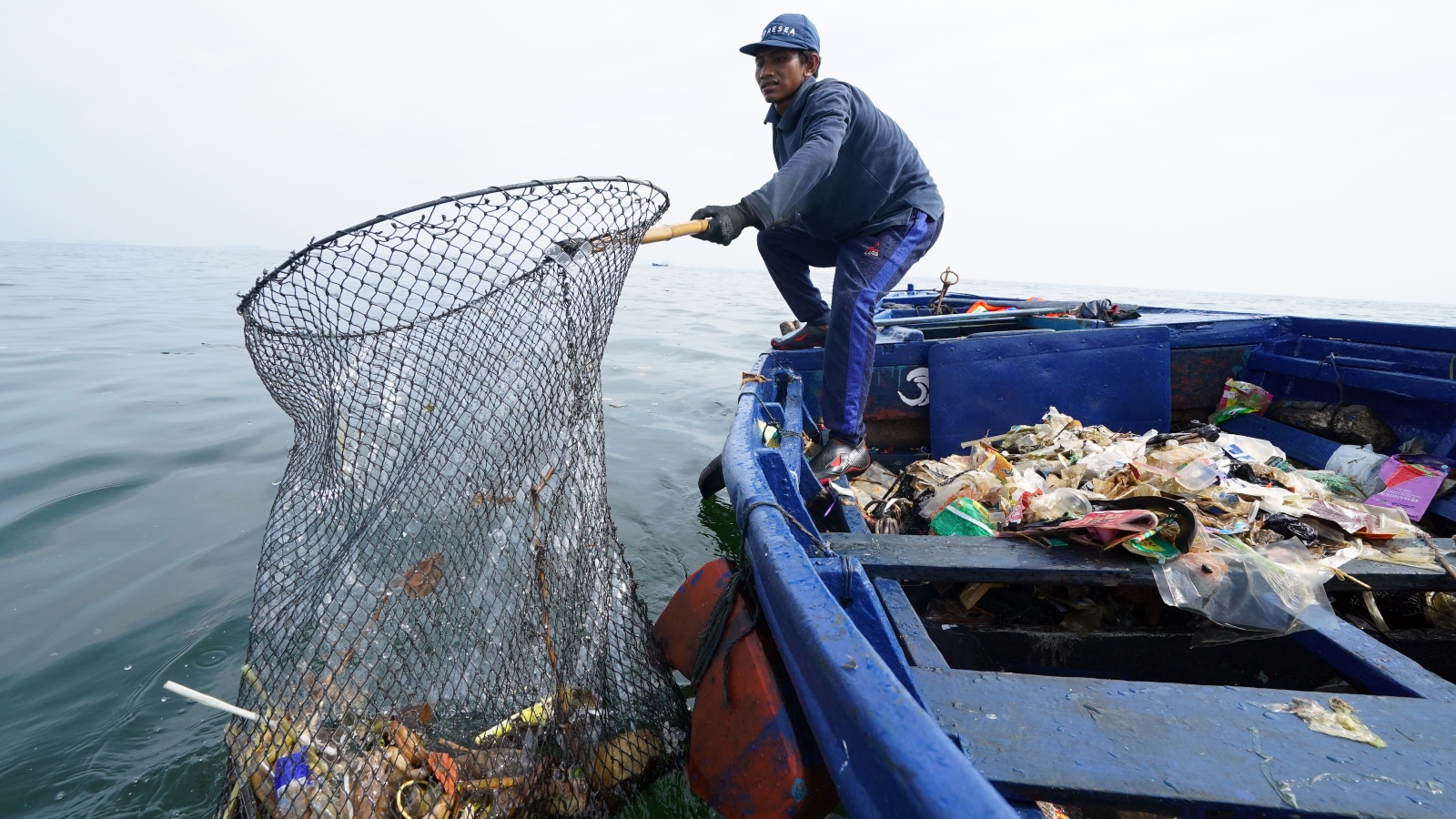Reduce, reuse, recycle — it’s an exhortation that’s become universal. For decades, the phrase has been used on posters and public service announcements, encouraging well-meaning citizens to cut down on waste and pollution. But it doesn’t seem to be working. Global plastic production has grown more than eightfold since the 1970s, when the three “r’s” were coined, rising to almost 400 million metric tons a year. It’s on pace to triple again by 2060.
But a new United Nations report published Tuesday argues that the old phrase could help cut plastic pollution more than 80 percent by 2040, as long as the world’s lawmakers get serious about putting all three into practice. The analysis from the U.N. Environment Programme comes just before the body’s member states gather in Paris at the end of the month to negotiate a binding treaty to end plastic pollution. It offers a plan for controlling a pollutant that has clogged oceans, beaches, and human lungs, in large part by incentivizing governments and companies to collect and reuse plastic waste.
While the original “reduce, reuse, recycle” phrase asked individuals to take action, the U.N.’s report focuses on the larger causes of plastic pollution. Addressing these causes is far harder than finding a way to convert an empty milk jug into a yoga mat: “Technical solutions for a circular plastics economy are known,” the report states, but “the economic, fiscal, and business models” for deploying them “are less clear.”
The first and easiest way to cut down on pollution is to produce less plastic in the first place, the report argues. Paper cups and compost-based takeout packages are easy to substitute for existing plastic products, but governments will need to speed up adoption by subsidizing these green alternatives. Better yet, they could require the adoption of reusable bottles and containers. The Caribbean island nation of Santa Lucia took such a step in 2019 when it both banned single-use plastic food containers and also abolished import taxes on sustainable alternatives, using economic policy to push citizens and businesses toward greener products.
Increasing the reuse of plastic products is harder, and requires governments to use a stronger hand. Right now reusing plastic tends to be more expensive than buying so-called virgin material. One potential solution, according to the U.N., is a tax on the purchase of new plastic, but legislators could also require companies like Unilever and Amazon to come up with reuse plans for the thousands of tons of plastic they produce each year. Supermarkets could fill their aisles with bulk dispensers rather than individually packaged items, for instance, or cities could create “reverse vending machines” that allow consumers to drop off their used packaging. These policies have been tried before without widespread success, but the report recommends laws or heavy tax incentives to help scale them up.
The last and most dubious step is to fix the recycling system, which has so far failed to stem the tide of pollution. The U.N. points out that the most obvious place to start is with a significant new investment in collecting recyclable material. The world recycles just 9 percent of its plastic, and overall waste collection rates are low as well: even in middle-income countries, urban areas only collected around 67 percent of all available waste as of 2016. The U.N. says governments can push those numbers higher and control pollution by investing in public waste disposal services, to the tune of about $54 billion between now and 2040. But leaders will also need to support the more than 11 million informal waste pickers around the world who derive their income from gathering discarded materials.
Advocates argue, however, that the new U.N. report focuses too much on the second two “r’s” — reuse and recycle — and neglects the need to stop producing hazardous plastics in the first place. They also question the report’s emphasis on using public investment to clean up waste produced by private firms.
“They’re saying [plastic] is an asset,” said Bjorn Beeler, the international coordinator for the International Pollutants Elimination Network, a coalition of nonprofits that advocates against toxic chemicals. “We’re saying it’s actually a liability because plastic waste is essentially hazardous waste.”
And the U.N.’s focus on creating a market for recycled material is troublesome, because it will ensure that toxic chemicals keep moving through the economy, Beeler noted.
“I think the biggest problem with their list of solutions is that it neglects the reality of what plastics are,” he said. “Plastic is the combination of carbon and chemicals. You don’t know once it enters the waste stream, once it enters the market, once it leaves the producer, once it enters the market, once it leaves the producers, what’s in it.”
The U.N. report acknowledged some of these challenges: Even if the world did get serious about implementing the three “r’s,” millions of tons of plastic will still end up in oceans and landfills each year. Dealing with the legacy of that pollution will require a muscular approach from U.N. member states. Rather than just subsidizing alternatives to plastic, governments will have to clamp down on landfill disposal and waste exporting, using sticks rather than carrots to stop companies from offloading trash.
These investments and enforcement actions won’t be cheap, but cutting down on plastics would save the world trillions of dollars over the long run, according to the report. Less plastic would end up in the oceans, so governments would save money on marine cleanup, and fewer people around the world would breathe in toxic emissions from plastic production, which would avoid health damages. Increasing production of plastic alternatives and investing in new recycling facilities would also create more than 700,000 new jobs over the next 20 years.
But Beeler says the investment in cleanup should come from the polluters themselves, not the governments meeting in Paris later this month.
“If you can convince the public and the taxpayers and the governments that they should clean up this plastic waste mess, and it’s their problem, then yeah, this is this is all attainable,” he told Grist.



